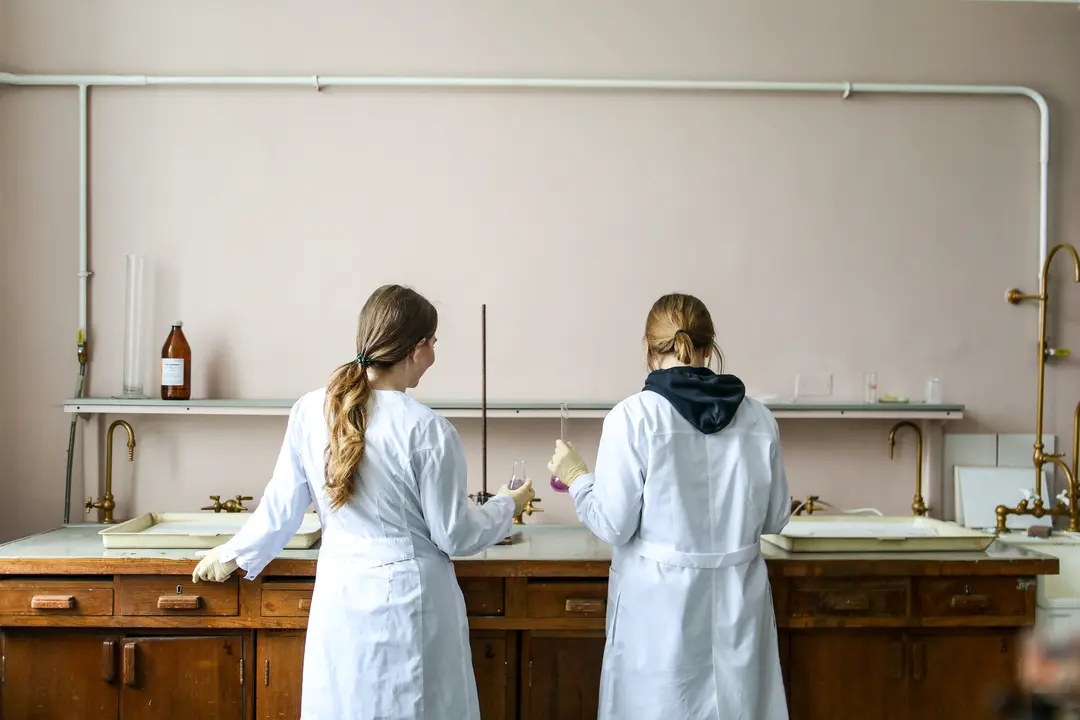Unlocking Your First Work Experience: A Step-by-Step Guide for High Schoolers

Work experience is extremely important in shaping your career aspirations and building practical skills outside of academia. With the OxBright Career Test, we found that students ranked themselves lowest by quite a margin for work experience (2.76 out of 5 on average) which suggests that finding your first work experience before starting university can be a challenge.
This article aims to equip students with the knowledge and tools to find and secure valuable work experience ahead of university applications.
What Are the Benefits of Work Experience in High School?
The importance of work experience can’t be overstated. It’s key to both academic development and professional progress within the career of your choice. High school work experience has a number of advantages both for university applications and your overall career, including:
I. Gaining clarity over your future career choices
Exposing yourself first-hand to work experience within a chosen field can help you to determine whether you’d like to pursue a certain career. This means getting work experience early on is often crucial for your future career choices.
II. Developing a better understanding of the world of work
Work experience can help you gain a clearer understanding of the professional world. Acquiring personal experience and expertise within a company allows you to understand how to be an efficient employer (or employee) after your internship.
Consequently, early exposure to your chosen field of work will put you in a better position than others who will go on to apply to the same job.
Additionally, the search for networking and communication within the professional space can allow you to discover careers that you didn’t even know existed!
III. Building skills that you can’t develop in the classroom
Academic success is extremely important. However, many, if not all, universities and workplaces look for something in their applicants that goes beyond academic achievement. One of the ways this extra “something” can be gained is through work experience.
Any extracurricular activities and work experience you undertake during high school will benefit your social, communicative and problem-solving skills. These skills will not only help you with your university application, but also in your university interviews and entrance tests.

IV. Increasing your confidence
One of the major challenges of finding employment is how intimidating the workspace can be if you have no prior knowledge or experience of the activities of your chosen career or field of work.
Work experience is the ideal remedy for this. Offering brief opportunities for you to get a feel for your chosen workspace, it’s a highly valuable experience that can remove any doubts you might have about a specific job or career path.
V. Adding value to your CV and UCAS applications
The most obvious benefit of work experience is the boost it offers to your UCAS application and your CV. Having work experience (especially the type that branches out from your academic interests or chosen subject) shows that you’re open to variety, new experiences, and are well-equipped to pursue your goals with the appropriate mindset.
How to Choose the Work Experience Opportunities that Appeal to You
The first thing to do is discover your own areas of professional interest. You could chat with family members about their careers, attend careers fairs at school, or seek out “day-in-the-life” style content for various careers online.
It’s very important to go for opportunities that actually appeal to you rather than seeking out ones that might “look good” on a CV. Your chosen career path matters greatly in the long-term, and every work experience investment should be worth it.
Leveraging School Resources and Networks
You should make the most of school-based resources and personnel who are available when deciding your work experience opportunities. Many schools and sixth form colleges have prep services available for work experience, and searching for a holiday internship is even mandatory in some schools around the UK.
Therefore, you can ask the career support division in your school for sessions, which might include CV drafting or mock interviews, or might give you the opportunity to come into contact with various professionals in their respective fields.
If you know the field you’d like to move into, you can even ask your school whether there are any alumni in that area they can put you in contact with!
How to Prepare a Standout CV
One of the most time-consuming parts of career applications is preparing a student CV, and the work experience you undertake will inevitably be shaped by what you want to include within your CV.
Most importantly, keep in mind that as a student, companies don’t expect you to have a lot of experience at all. You’re still very young, after all. You must therefore be very conscious of what you do or don’t include in your CV, because no company will want to read pages and pages of a student CV when considering an application.
Try to make sure that your CV is brief and only highlights the most relevant information. For example, the skills and experiences you have that matter to the specific field of employment you’re applying to.
Including extracurricular activities and volunteer work experience in your CV is also very beneficial.

Where to Find Work Experience Opportunities
When searching for work experience, you need places to look. Options for your work experience search include both online resources and personal networks.
The best-known and trustworthy job search websites include Indeed, Totaljobs, and your school’s own career departments.
Another opportunity for you to find out the best way to search for work experience is in our OxBright Career Test, which can determine your area of expertise and the sort of networking you need.
Making the Most of Your Experience
As a result, if you do manage to find some early work experience, keep in mind that what matters the most during work experience is to engage in it with confidence and excitement. Ask questions and reflect on what you’ve learned each day, as this will be useful in future applications.
There’s nothing wrong with making work experience a fun activity for yourself – in fact, that’s the best way to do it!

By Ali Sezgin
Ali is currently studying a BA in English Language and Literature at the University of Oxford, and is particularly interested in Old English and Renaissance world literature. He has experience in school journalism, and enjoys writing articles and doing research.
Recommended articles
OxBright Tutors Share Their Top Tips for High School Graduates
Finishing high school can be a really intimidating juncture – you’re leaving the security of a routine you’ve followed for five plus years, and you’re faced with more options and less structure than ever before. Oh, and your decisions now can shape your future in a...
Which Career Is the Best Fit for Me?
Choosing your career path is one of the first big steps you’ll take as a young adult, so it can often be a daunting prospect. However, the possibilities are endless, and as long as you base your choices on your personal preferences, passions and interests, your...
How to Make a Study Schedule That Actually Works
Studying can sometimes feel like a daunting task, no matter how old you are or what level you’re studying at. You might be left thinking: How can I balance academics with my other commitments? How do I stay consistent with a study schedule? Is there a “good” or...



